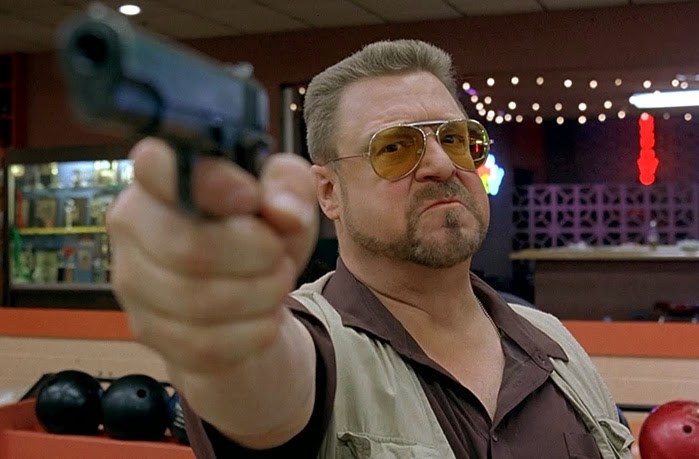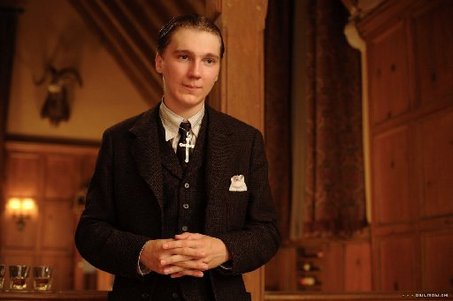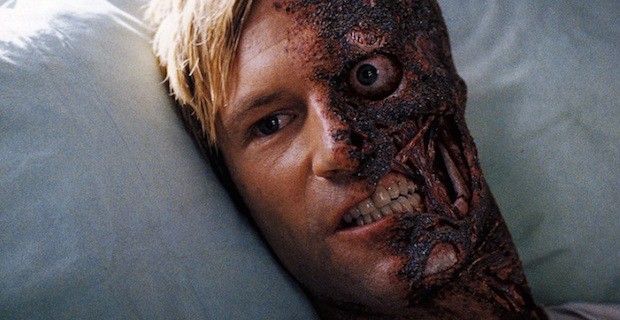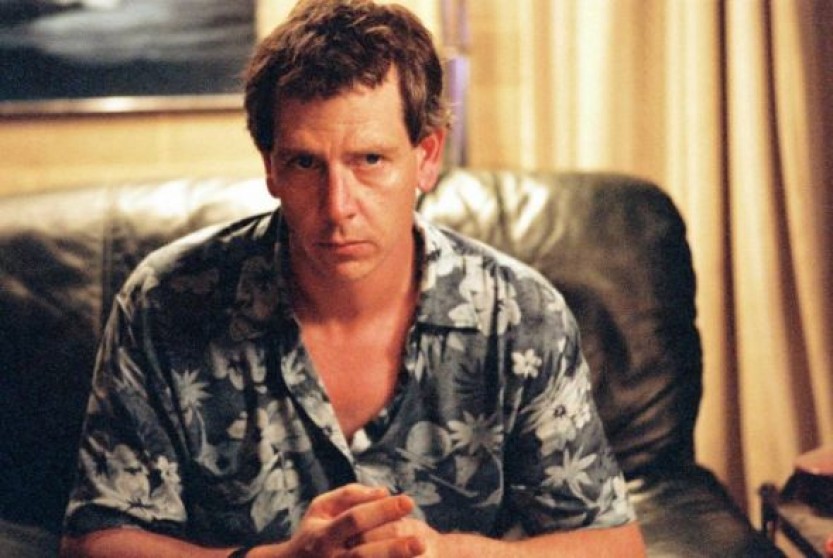11. The Big Lebowski (1998)

Performance that gets tremendous recognition: Jeff Bridges’s The Dude
Performance that is nonetheless great: John Goodman’s Walter Sobchak
The Coen Brothers cult hit the Big Lebowski is anchored by Bridges’s hilariously nonchalant The Dude. In a career topping performance, Bridges takes us through the narrative with the utmost engagement and amusement. However, Bridges’s success as The Dude could have potentially been minimal without the yin to his yan, Goodman’s Sobchak.
In all the right places, Goodman is predisposed to moments of sheer rage, ensuring that necessary contrast is evident between Sobchak and The Dude. Even though The Dude is the centerpiece of the film, Goodman’s war crazed Sobchak provides some of the greatest laughs of the film (see: “This is what happens when you fuck a stranger in the ass”).
The greatest joy that Goodman provides us is in the unrestrained nature of his performance. It is clear throughout the entirety of the film that he has approached the film with nothing holding him back. As the audience, we reap the rewards of seeing Goodman in his most laughably immersive performance to date.
12. There Will be Blood (2007)

Performance that gets tremendous recognition: Daniel Day Lewis’s Daniel Plainview
Performance that is nonetheless great: Paul Dano’s Eli Sunday
There Will be Blood is an excellent film, and was rated by the Guardian’s Peter Bradshaw as the best film of the 2000s. Aside from Paul Thomas Anderson’s screenplay, and his always engrossing and incisive direction, a lot of the film’s success was rightly attributed to Daniel Day Lewis, in another Oscar winning performance.
Day Lewis was as domineering as we’ve seen him; asserting himself and speaking unapologetically throughout. Admittedly, the close medium shots Anderson chooses to frame Plainview aids Day Lewis’s performance by further intensifying it. Even in the whole situation with his ‘son’ H.W, Day Lewis is able to communicate to us that Plainview has only one pursuit: to make money.
Dano plays twins in this film: Paul and Eli Sunday. There have been a number of performances that require actors to play twins (Legend, The Prestige), and it is no mean feat. Dano is on point with both of these characters, able to shift from character to character without leaving any meaning behind. Specifically, Dano’s Eli Sunday was a masterful creation.
Dano is persistently getting up into Plainview’s face, demanding compensation for his land. We as an audience genuinely feel irked by this understated performance. While Day Lewis is forthright, Dano is suggestive; which creates the perfect character contrast between the two competing men, and a final, visceral denouement.
13. The Dark Knight (2008)

Performance that gets tremendous recognition: Heath Ledger’s Joker.
Performance that is nonetheless great: Aaron Eckhart’s Harvey Dent/Two Face
There is not a whole lot to say on the matter of Heath Ledger’s performance in Nolan’s The Dark Knight. We are all aware of the crazed gravity of the performance, and Ledger’s unparalleled dedication to the role.
It would not be amiss to say that Ledger’s observance of the role; locking himself in a room for a month developing the character, and staying in character long after his scenes on set had been completed, rivals De Niro’s and Day Lewis’s adherence to Method acting principles. In fact, a lot of the praise for this film is derived from its incarnation of the Joker character.
At times, though, our focus on the Joker can lead us to ignore the importance of other characters in the film, namely Harvey Dent. The film’s success rather relies on the web of connection established between Bale’s Batman, Eckhart’s Harvey Dent, Oldman’s James Gordon and Ledger’s Joker.
It is Harvey Dent that allows the characters to interdepend upon each other, and provides much of the ethical comments the film appears to make. It was upon Eckhart’s shoulders to deliver a dynamic, assured performance as both Harvey Dent and Two Face, and he most certainly followed through with a mammoth performance.
In consideration of the fact that the film’s writer, David S Goyer, intended Eckhart to only feature as Harvey Dent in the first film, and thereafter transition to Two Face in the next film, his conviction and believability cannot be understated.
Eckhart’s Harvey Dent is suave, intrepid and good. We readily see Dent’s desire for a cleaner, stronger Gotham. This “white knight” persona of Dent’s is most integral to Eckhart’s character, insofar as Bale’s Bruce Wayne strongly contemplates handing over the unofficial title of Gotham’s savior and protector to him.
The real value, however, is embedded in Eckhart’s transformation into Two Face. The rapidity with which Eckhart had to “flip” into the antithetical persona of Two Face required serious understanding of the character’s dramatic shift in values and mental state. The transition from orderly to chaotic could not have been done with more seamlessness and profundity than Eckhart achieved; as we are coerced into believing in his radical transformation.
Similarly, a lot of the moral weight of the film is explored in the final scene of the film; where we see Eckhart’s Harvey Dent at his lowest point. The anguish and pain that has driven this once great character to the depths of depravity impacts us at a blistering pace. At this point, where Two Face has fully transformed into such an unrecognizable figure, the battle for Gotham has clearly been won by the Joker.
Dent is the symbolic object of competition between the forces of good, as embodied by Batman, and the forces of chaos, as embodied by the Joker. Dent’s fall, and his demise signifies the victory (albeit mitigated by Batman’s compromise) had by the Joker. Eckhart is imperative to communicating the moral of the film, and he does it in unquestionable style.
14. Animal Kingdom (2010)

Performance that gets tremendous recognition: Jacki Weaver’s Smurf
Performance that is nonetheless great: Ben Mendelsohn’s Pope
This Australian film is really a gem, propped up by great performances all round. Often, though, the gravity of the acting is merely summated in Weaver’s performance as the matriarch of the family, Smurf. This was a towering performance and well worthy of the Oscar she was awarded.
That being said, the ensemble, headed by veteran Australian actor, Ben Mendelsohn managed to keep pace with her. Weaver’s character helps bind the film together, and she effectively gives off the impression of a malicious, insidious mother with a vice grip over her dependent sons.
Mendelsohn’s Pope acts as the lieutenant to Weaver’s Smurf, aiding her every request in a relentlessly violent way. Although much of Smurf’s malignancy is implied, Pope is explicitly animus. This is facilitated by Mendelsohn’s uncompromising, forthright demeanor.
In this respect, Smurf is the centerpiece of the film. However, a significant portion of her power as the matriarch controlling the crime-ridden family is actually put into action by Pope. Pope’s scenes are defined by his overt dislike of J (James Frenchville) and his desire to preserve his family’s monopoly over Melbourne’s crime scene. Mendelsohn is more than up to this task, turning in a visceral performance.
15. A Most Violent Year (2014)

Performance that gets tremendous recognition: Oscar Isaac’s Abel Morales
Performance that is nonetheless great: Jessica Chastain’s Anna Morales
JC Chandor’s A Most Violent Year is one of the few masterpieces of contemporary cinema. It is a much needed reminder of Coppola’s the Godfather (1972); in that both Vito Corleone’s (Marlon Brando) and Abel Morales’s (Oscar Isaac) businesses are decaying. The visual styles of the films are also not by any stretch dissimilar.
Isaac’s character is the protagonist of the film, responsible for the functioning of his oil-distribution business. Isaac adeptly depicts Morales as a man under siege by crime, and without the necessary tools to combat it. Despite his handsome, cool exterior, the nuances of Isaac’s facial expressions reveal Morales to be incapable of dealing with the decline of his business.
Chastain’s Anna Morales is both bothered by the crime that targets her family and her husband’s business, and also resistant in the face of it. She repeatedly demands her husband take definitive action against those who threaten his business, which creates a curious interplay between husband and wife.
The chemistry between Chastain and Isaac is excellently executed, providing a great friction in both characterization and narrative. In many ways, Chastain’s performance is more assertive than Isaac’s, and it is important in highlighting her family’s vulnerability to criminal activity.
Author Bio: Nick is a uni student with more interest in film than the subjects he is studying. He is waiting for a reunion between De Niro and Scorsese.